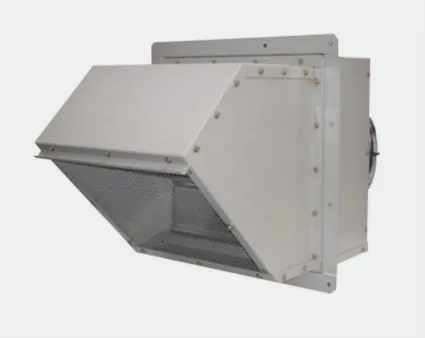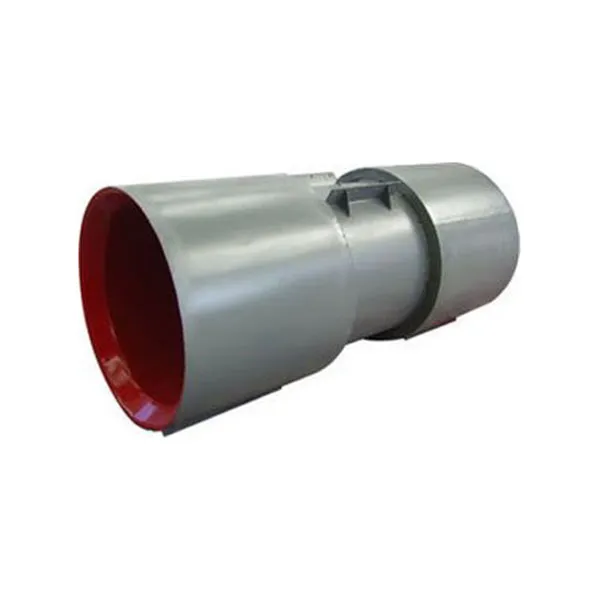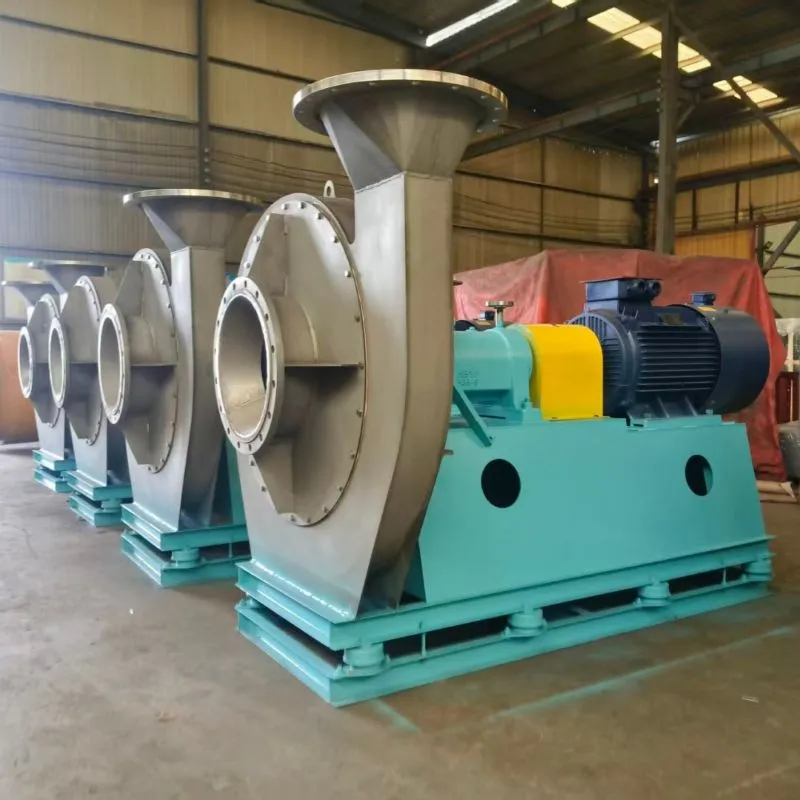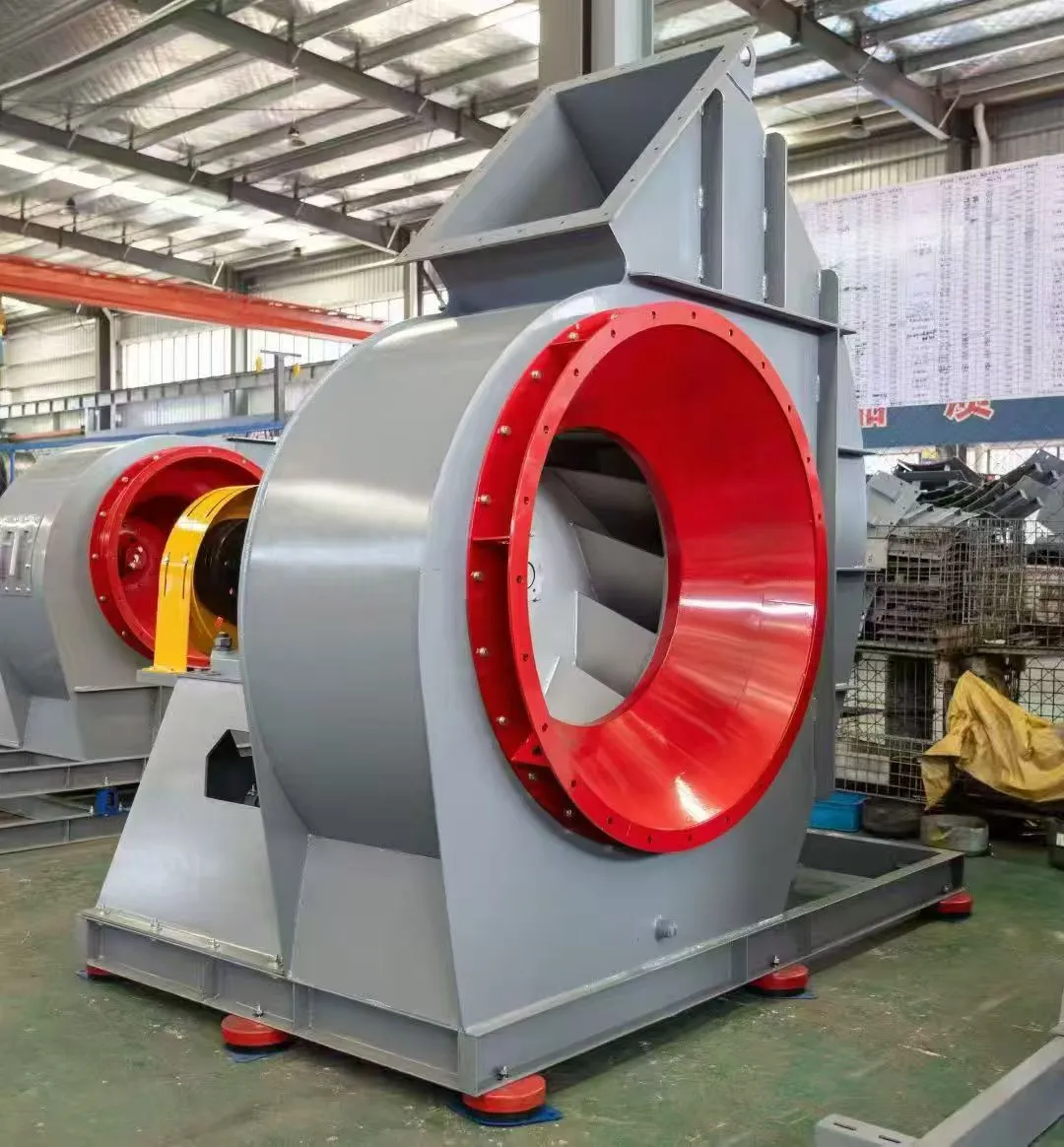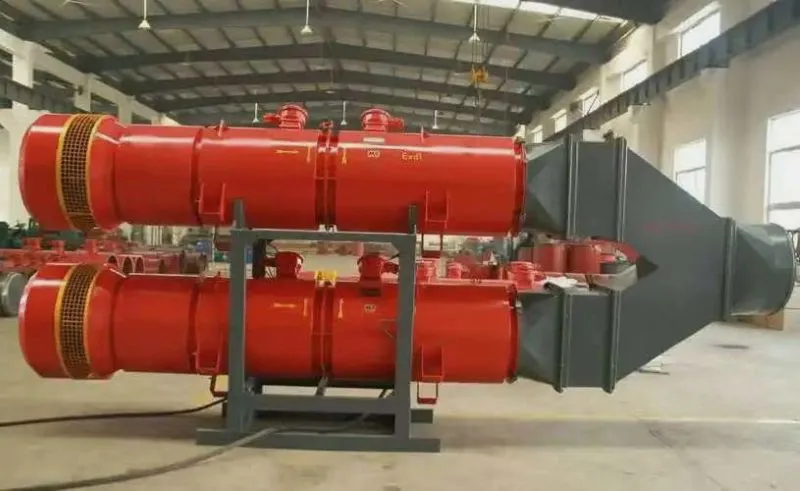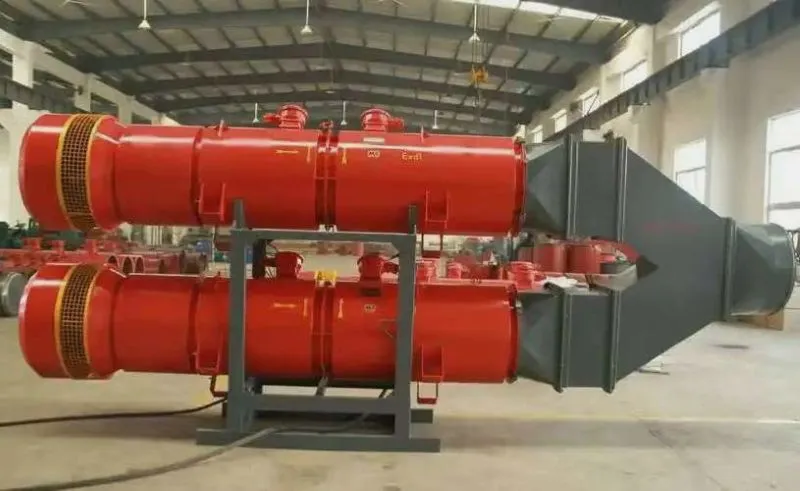Centrifugalni ventilatori već su dugo glavni proizvod u industrijskim okruženjima, ali njihova se uloga u povećanju učinkovitosti rashladnog tornja često podcjenjuje. Učinkovitijim uvlačenjem zraka kroz sustav, ovi ventilatori mogu optimizirati performanse, uštedjeti energiju i produžiti životni vijek opreme. Zanimljivo je kako se tako ključna komponenta ponekad zanemaruje, unatoč jasnim prednostima koje nudi u praksi.
Razumijevanje dinamike centrifugalnog ventilatora
Počnimo s osnovama. A centrifugalni ventilator pomiče zrak pod pravim kutom u odnosu na smjer usisa, koristeći centrifugalnu silu generiranu rotacijom cilindra. Ovaj mehanizam inherentno povećava pritisak, što ga čini idealnim za prevladavanje otpora u cjevovodu - nešto s čime se bore aksijalni ventilatori. Ali kakav je stvarni utjecaj na rashladne tornjeve?
Kad sam tek počeo raditi sa sustavima hlađenja, primijetio sam da mnogi inženjeri preferiraju aksijalne ventilatore zbog njihove jednostavne instalacije. Međutim, u uvjetima gdje je otpor zraka visok, centrifugalni ventilator pokazao se daleko učinkovitijim. Njegova sposobnost održavanja dosljednog protoka zraka unatoč blokadama značajno pomaže u održavanju stabilnog procesa hlađenja.
Razmotrite scenarij u kojem je održavanje bilo često, a učinkovitost hlađenja niska. Prelazak na centrifugalni ventilator tvrtke Zibo Hongcheng Fan Co., Ltd., poznatog po svojoj izdržljivosti centrifugalni ventilatori, napravio je opipljivu razliku. Poboljšao je dosljednost protoka, što je dovelo do manjeg prekida rada i boljih performansi sustava.
Energetska učinkovitost i implikacije troškova
Ušteda energije - sada se centrifugalni ventilatori uvelike ističu. Oni su učinkovitiji u premještanju zraka protiv visokog tlaka, što znači da je potrebno manje rada za postizanje istog učinka. Ova se učinkovitost prevodi u manju potrošnju energije, što je pravi dobitak za svakog upravitelja postrojenja koji brine o operativnim troškovima i ciljevima održivosti.
Sjećam se projekta u kojem su troškovi energije smanjeni za 15% samo zbog nadogradnje na ventilator boljeg dizajna. Početna investicija brzo je nadoknađena smanjenim računima za električnu energiju, a da ne spominjemo povećanu pouzdanost sustava koja je dovela do rjeđih popravaka.
Zibo Hongcheng Fan Co., Ltd. nudi razne modele koji zadovoljavaju ove potrebe, naglašavajući i učinkovitost i trajnost. Njihovi ventilatori, izrađeni od vrhunskih materijala, osiguravaju duži radni vijek i otporni su na oštra industrijska okruženja.
Razmatranja održavanja i izazovi u stvarnom svijetu
Održavanje je još jedno područje u kojem centrifugalni ventilatori pokazuju svoju vrijednost. Aksijalni ventilatori mogu biti problematični za održavanje zbog lakšeg začepljenja. Centrifugalni dizajni, sa svojim svojstvima samočišćenja, zahtijevaju rjeđe održavanje, što omogućuje glatkiji rad.
Međutim, to nije uvijek jednostavan prekidač. Naišao sam na otpor timova koji su bili oprezni u mijenjanju uspostavljenih sustava. Ključ je bio demonstriranje opipljivih prednosti kroz pokuse, koji su pokazali smanjene sate održavanja i troškove - činjenice koje je teško zanemariti prilikom balansiranja proračuna.
Još jedan zanimljiv slučaj uključivao je aplikacije otporne na koroziju. Ventilatori koje isporučuje Zibo Hongcheng Fan Co., Ltd. pokazali su se izvanrednim, posebno u okruženjima s agresivnim kemikalijama. Njihovo ventilatori od nehrđajućeg čelika izdržao uvjete kojima su drugi podlegli, ponovno ističući pouzdanost marke.
Prilagođena rješenja za jedinstvene situacije
Raznovrsnost centrifugalnih ventilatora omogućuje prilagodbu za određene primjene. Na primjer, u složenim instalacijama inženjeri se ponekad odlučuju za ventilatore optimizirane za smanjenje buke, posebno u urbanim sredinama gdje je zagađenje bukom problem.
U jednom nezaboravnom projektu, posebno dizajnirani centrifugalni ventilator bavio se zahtjevima učinkovitosti i buke, osiguravajući usklađenost s lokalnim propisima o buci. Jedinica dolazi od Zibo Hongcheng Fan Co., Ltd., čiji su proizvodi dopuštali izmjene bez žrtvovanja performansi.
Takva prilagodljivost čini centrifugalne ventilatore preferiranim izborom za moderne rashladne tornjeve koji se žele prilagoditi promjenjivim regulatornim i ekološkim standardima.
Put naprijed u tehnologiji hlađenja
Kada su sustavi rashladnih tornjeva spremni za budućnost, integracija napredne tehnologije ventilatora je nezamjenjiva. Stalne inovacije vidljive kod tvrtki poput Zibo Hongcheng Fan Co., Ltd., potiču napredak ventilatori otporni na koroziju i drugim područjima, signalizira povoljan trend prema većoj učinkovitosti i pouzdanosti.
Kako se zahtjevi za hlađenjem povećavaju s globalnim klimatskim izazovima, uloga učinkovitih ventilatora postat će sve važnija. Stoga, suradnja s proizvođačima koji neprestano pomiču granice, nudeći raznolike i pouzdane opcije ventilatora, postaje ključna za održavanje optimalnog rada.
U konačnici, odluka o integraciji centrifugalnih ventilatora, iako je u početku bila zastrašujuća zbog razmatranja troškova i modifikacija sustava, dugoročno se sveobuhvatno isplatila - i ekološki i ekonomski.









